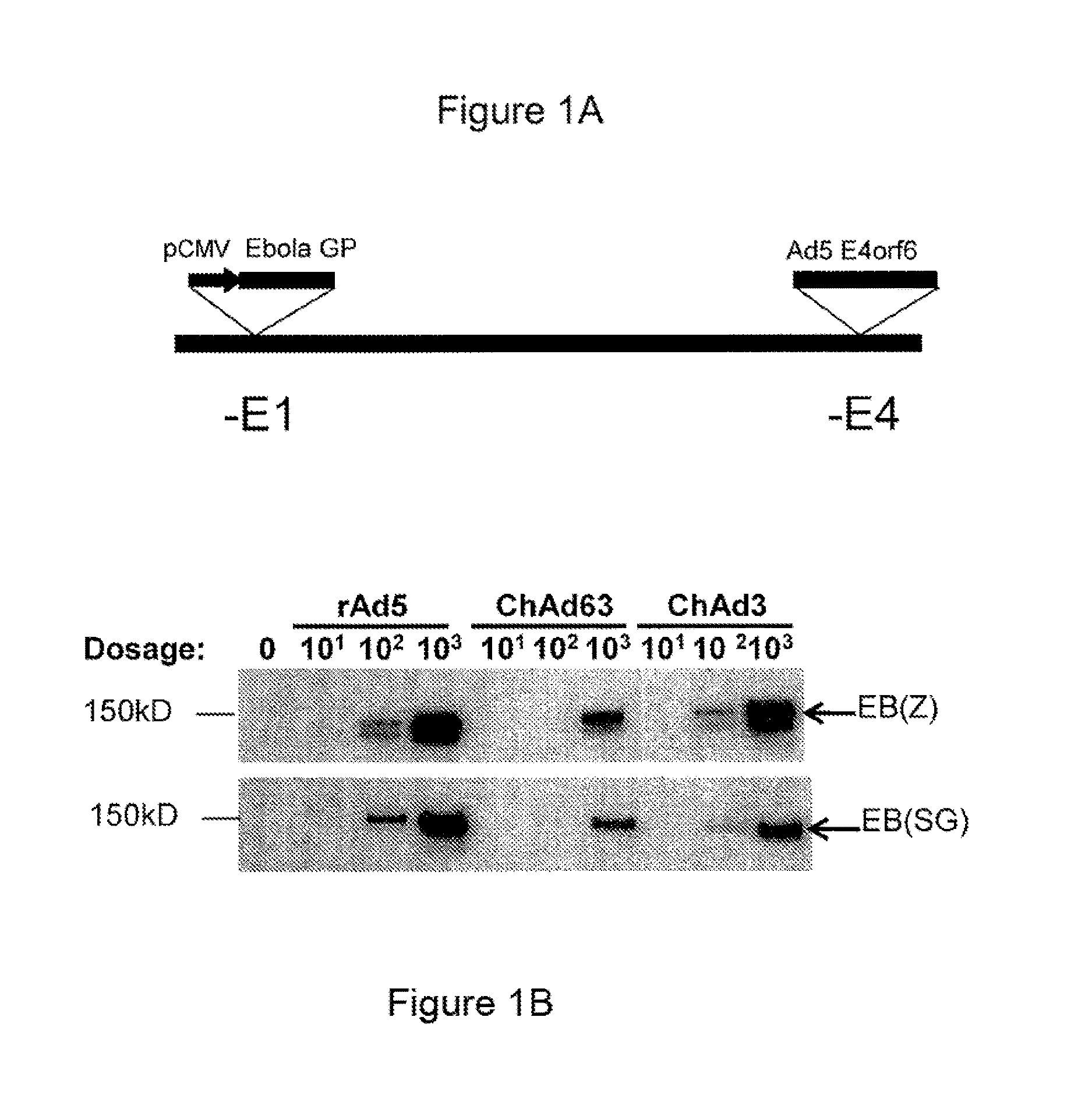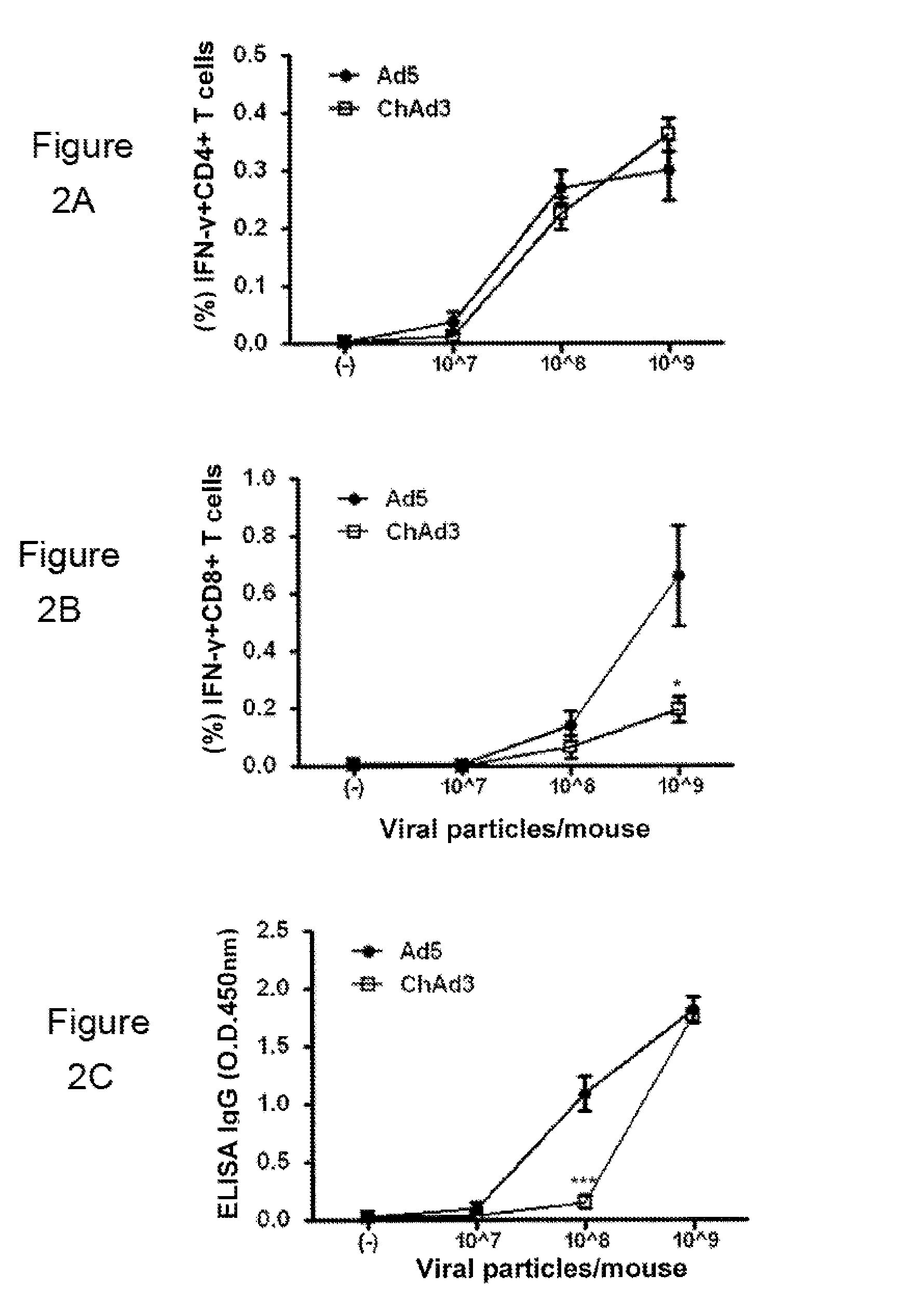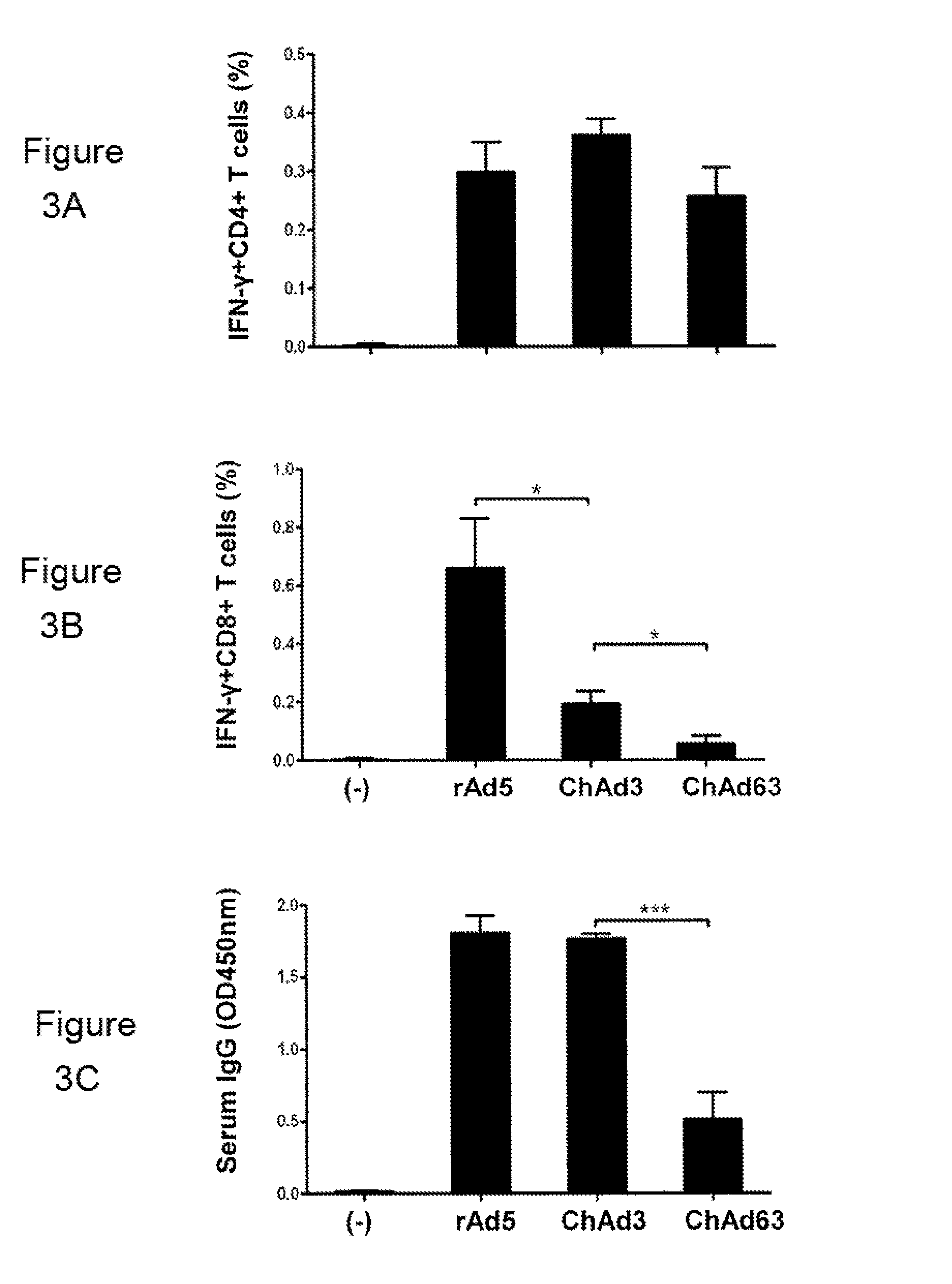Methods for the induction of ebola virus-specific immune responses comprising administering a replication-defective chimpanzee adenovirus vector expressing the ebola virus glycoprotein
a technology of chimpanzee adenovirus and glycoprotein, which is applied in the field of viral vaccines, can solve the problems of public panic and social disruption, and previous attempts to elicit protective immune responses against ebola virus using traditional active and passive immunization approaches have not succeeded in primates, and achieve the effect of increasing the cumulative alignment scor
- Summary
- Abstract
- Description
- Claims
- Application Information
AI Technical Summary
Benefits of technology
Problems solved by technology
Method used
Image
Examples
example 1
[0102]This example shows that humoral and cellular responses generated by ChAdC3 Ebola (S / G) and ChAdC3 Ebola (Zaire) were comparable to those generated by rAd 5Ebola (S / G) and rAd5 Ebola (Zaire) respectively.
[0103]Immunization of cynomologous macaques with ChAdC3 Ebola (Zaire) produced antigen-specific antibody and Cd4+ and Cd8+ T cell responses. Protection against infection with a lethal dose of EBOV-Zaire was also demonstrated, as 4 macaques survived the challenge after immunization with ChAdC3 Ebola (Zaire) (see FIGS. 1-7).
example 2
[0104]This example shows that a single immunization with rChAdC3 Ebola (Zaire) elicited humoral and cellular immune responses comparable to those generated by rAd5 Ebola (Zaire).
[0105]Immunization of cynomologous macaques with rChAdC3 Ebola (Zaire) produced antigen-specific antibody and Cd4+ and Cd8+ T cell responses. Protection against infection with a lethal dose of EBOV-Zaire was also demonstrated, as 4 out of 4 macaques survived the challenge after immunization with rChAdC3 Ebola (Zaire) (see FIGS. 8-10).
example 3
[0106]This example shows that a single immunization with adenoviral vectors encoding humanized Ebola glycoprotein (EBOV-GP) induced stronger cellular and humoral responses in mice than adenoviral vectors encoding non-humanized EBOV-GP.
[0107]Groups of female Balb / C mice were immunized with rAd EBOV-GP (Z) at a dose of 107, 108, and 109 viral particles via intramuscular injection. Cellular immune responses (Cd4+ and Cd8+ T cell responses) in PBMC and humoral responses (IgG) to EBOV-GP were measured at three weeks post immunization by ICS (intracellular cytokine staining) and ELISA, respectively. As shown in FIG. 11, immunization with adenoviral vectors rChAd3 and rChAd63 encoding EBOV-GP (Zh) codon optimized for expression in humans produced significantly higher percentages of CD4+ T cells that express cytokines IFN-γ and TNF-α than the same vectors encoding non-humanized (wild-type) EBOV-GP (Z) (SEQ ID NO:10), and these responses were significantly greater than the response due to rA...
PUM
| Property | Measurement | Unit |
|---|---|---|
| pH | aaaaa | aaaaa |
| nucleic acid | aaaaa | aaaaa |
| length | aaaaa | aaaaa |
Abstract
Description
Claims
Application Information
 Login to View More
Login to View More - R&D
- Intellectual Property
- Life Sciences
- Materials
- Tech Scout
- Unparalleled Data Quality
- Higher Quality Content
- 60% Fewer Hallucinations
Browse by: Latest US Patents, China's latest patents, Technical Efficacy Thesaurus, Application Domain, Technology Topic, Popular Technical Reports.
© 2025 PatSnap. All rights reserved.Legal|Privacy policy|Modern Slavery Act Transparency Statement|Sitemap|About US| Contact US: help@patsnap.com



